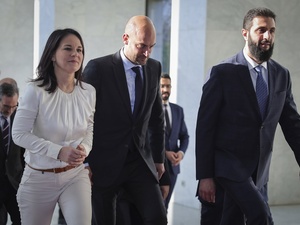Spotlight
Yemen's Houthi rebels claimed a missile attack Thursday against Israel, which said it intercepted the threat and struck back before warning the Iran-backed movement it would "pay a heavy price".
The Houthis, who control most of Yemen's population centers, have repeatedly launched missiles at Israel since the Gaza war broke out more than a year ago.
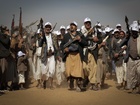 Full Story
Full Story
Prime Minister Benjamin Netanyahu took the stand on the fourth day of testimony in his corruption trials Wednesday, saying the accusations against him are “idiotic.”
Netanyahu, the first sitting Israeli leader to take the stand as a criminal defendant, is on trial on charges of fraud, breach of trust and accepting bribes in three separate cases.
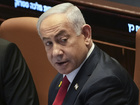 Full Story
Full Story
The Damascus airport reopened Wednesday for the first time since the fall of the government of Bashar Assad, and the first civilian plane took off from Damascus and landed in the northern city of Aleppo.
The airport is currently open only to domestic flights, but Syrian airspace is open to international traffic.
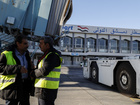 Full Story
Full Story
Hundreds of Israeli students walked out of school Wednesday to call for an immediate deal to release the remaining hostages held by Hamas in the Gaza strip as there appears to be progress in ceasefire talks.
From Tel Aviv to Jerusalem, students headed for central junctions, blocking roads and holding signs with the faces of the captives remaining in Gaza after 14 months of war.
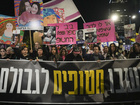 Full Story
Full Story
Bones are visible here and there among the mounds of earth in a field south of Damascus, one of the mass graves around Syria believed to hold the bodies of tens of thousands of people killed under Bashar Assad's rule. With his ouster, residents, forensic teams and international groups face what could be a yearslong task of unearthing the dead.
In this site alone, by the town of Najha, several tens of thousands of bodies could have been buried, said Stephen Rapp, a former U.S. ambassador-at-large for war crimes issues who was visiting the site Tuesday. Some are believed buried under already existing graves of a regular cemetery nearby, he said.
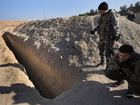 Full Story
Full Story
High in the mountains of the Israeli-controlled Golan Heights, the town of Majdal Shams is home to members of one of the Middle East's most insular religious minorities: the Druze.
With its roots in 10th century Ismailism, a branch of Shiite Islam, the roughly 1 million-strong minority is spread across Syria, Lebanon, Israel and the Golan Heights.
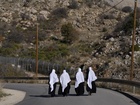 Full Story
Full Story
Israel's prime minister, Benjamin Netanyahu, entered Syrian territory Tuesday and said Israeli troops would remain in the area indefinitely, blurring the border with its northern neighbor.
Since its establishment in 1948, Israel has never had fully recognized borders. Throughout its history, the frontiers with its Arab neighbors have shifted as a result of wars, annexations, ceasefires and peace agreements.
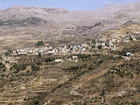 Full Story
Full Story
The UN Security Council has called for an "inclusive and Syrian-led" political process to be implemented after Bashar al-Assad's ouster.
The Council issued its first statement on new Syria, calling for a Syrian-led political process leading to elections and urging all nations to respect the country’s sovereignty, independence, unity and territorial integrity.
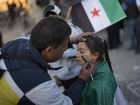 Full Story
Full Story
Prime Minister Benjamin Netanyahu has said that Israeli forces will stay in a buffer zone on the Syrian border, seized after the ouster of Syria's President Bashar Assad, until another arrangement is in place "that ensures Israel's security."
Netanyahu made the comments Tuesday from the summit of Mount Hermon — the highest peak in the area — inside Syria, about 10 kilometers from the border with the Israel-held Golan Heights.
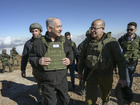 Full Story
Full Story
International Organization for Migration chief Amy Pope said Tuesday the U.N. agency was not advising the large-scale return of people to Syria before the situation in the country has stabilized.
"People have the right to return home... but we are not advising any sort of large-scale return... the system can’t bear that kind of influx," Pope told AFP during a visit to Lebanon, adding that "absent an investment in Syria itself... sending people back will only destabilize the country further and will likely create pressures for people to migrate out again".
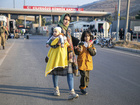 Full Story
Full Story



